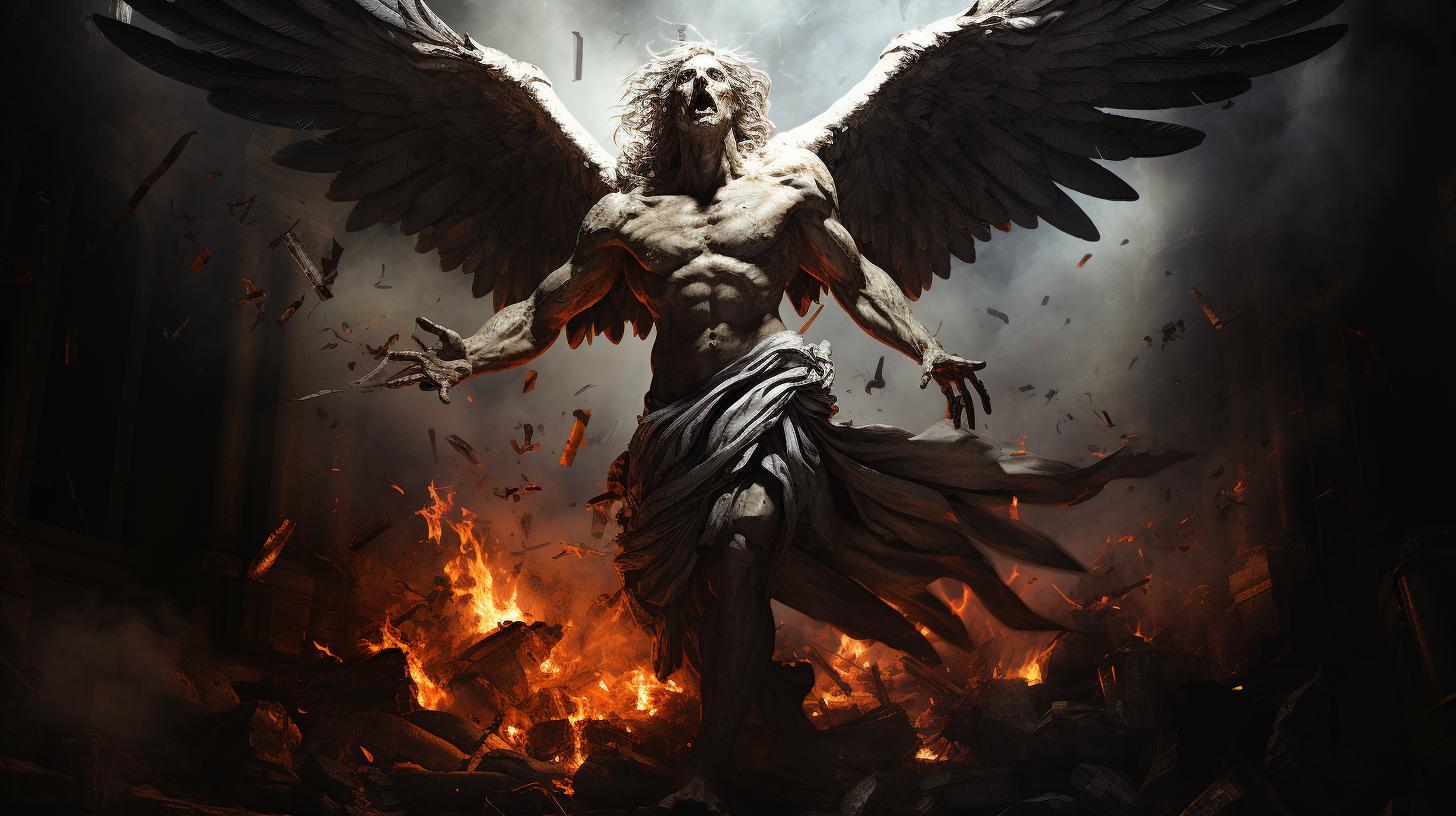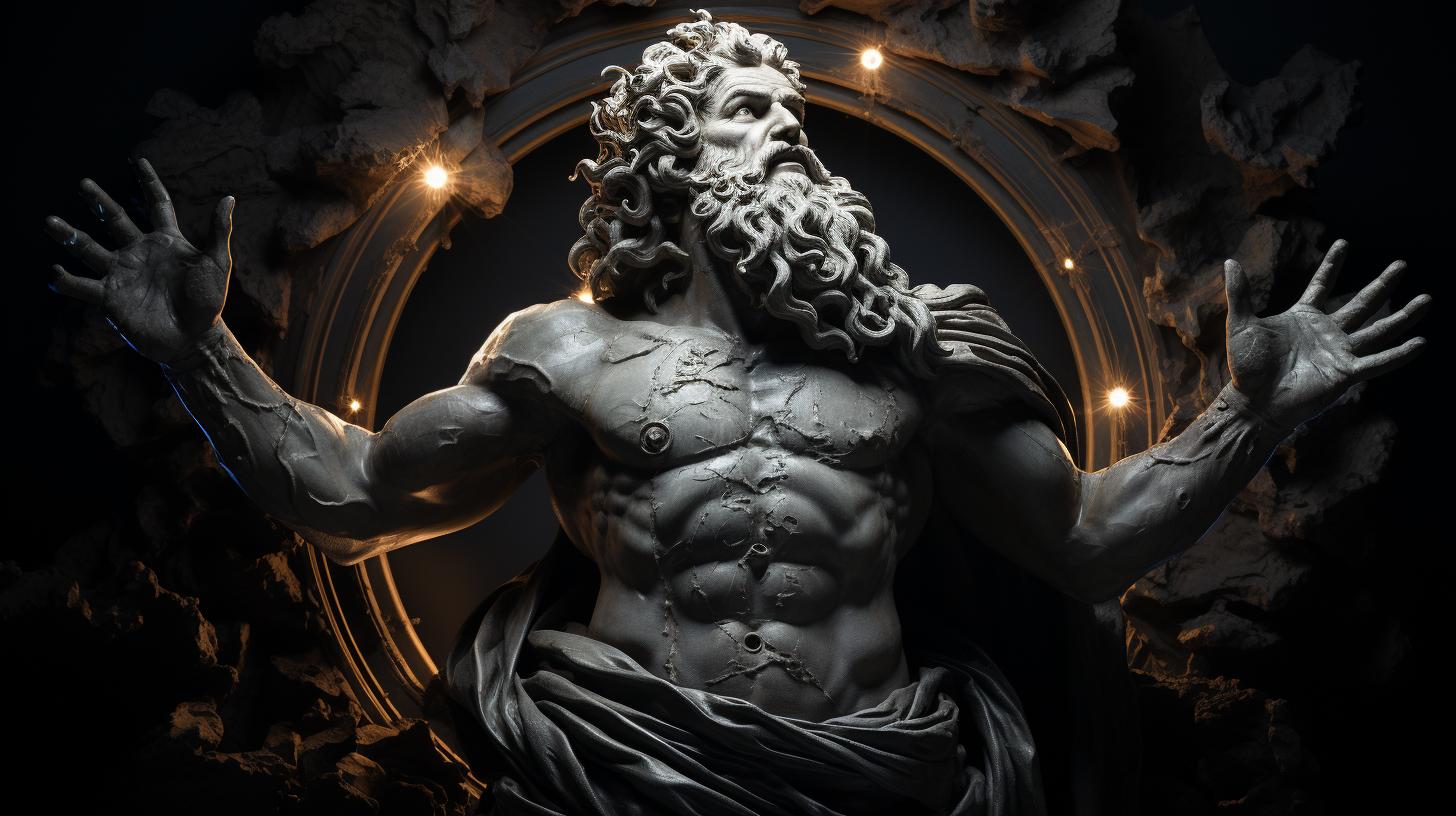Eileithyia: The Greek Goddess of Childbirth and Infant Protection

Eileithyia, the Greek goddess of childbirth and infant protection, held a significant role in ancient Greek mythology. Born from Zeus and Hera, she played a crucial part in the process of childbirth and was worshipped throughout Greece.
Eileithyia’s presence is seen in various myths, including the births of Athena, Apollo, Artemis, Hercules, and more. Dedicated sanctuaries and caves were established in her honor, particularly in Crete.
This article explores Eileithyia’s origins, her role in Greek society, her connections with other deities, and her significance in Cretan mythology.
Eileithyia: The Greek Goddess of Childbirth
Eileithyia, the Greek goddess of childbirth, held a significant role in ancient Greek mythology. This section delves into her origins, genealogy, mythological stories, and the crucial role she played in assisting women during childbirth.
Origins and Genealogy of Eileithyia
Eileithyia’s lineage can be traced back to Zeus and Hera, making her their daughter. She was also a sister to prominent gods and goddesses like Ares, Hephaestus, and Hebe. The roots of her name derive from the Greek verb ‘έλεηθείν,’ meaning ‘to come’ or ‘to help.’
Mythological Stories and Depictions of Eileithyia
Eileithyia appears in various myths and tales throughout Greek mythology. Her involvement in the birth of Athena, Apollo, Artemis, Hercules, and Eurystheus showcases her significance. One of the most well-known depictions of Eileithyia is in an Attic kylix, where she is present during the birth of Athena, emerging from the head of Zeus.
Role of Eileithyia in Assisting Women in Labor
Eileithyia played a crucial role in childbirth, aiding women in labor.
She was invoked by women in labor, who would call out for her assistance. Her support in the process of giving birth was vital and highly valued in ancient Greek society.
Eileithyia’s name was synonymous with relief and aid during the challenging experience of labor.
Worship and Cult of Eileithyia in Ancient Greece
Eileithyia, revered as the Greek goddess of childbirth and infant protection, held a significant position in the ancient Greek pantheon. Her worship and cult were essential aspects of Greek religious practices.
Let us delve into the sacred sites, rituals, and the influence of Eileithyia’s worship on ancient Greek society.
Sacred Sites and Sanctuaries Dedicated to Eileithyia
- The Cave of Eileithyia, located near Cnosos in Crete, ranked among the most revered places of worship. It was considered a sacred space where prayers were offered for safe deliveries.
- Other notable locations of devotion include the Caves of Olounta and Diktynnaio in Crete, as well as the sanctuaries in Lato and Eleutherna.
Rituals and Prayers Associated with Eileithyia
Pious worshippers engaged in various rituals and prayers to seek the favor and protection of Eileithyia during childbirth.
These practices included:
- Burning of torches: Torch-lit processions were held to guide newborns from the darkness of the womb into the light, symbolizing Eileithyia’s role in the transition.
- Votive offerings: Devotees presented offerings such as figurines, amulets, and ex-votos to express gratitude and seek the goddess’s blessings.
- Chanting hymns: Ceremonial songs and hymns were sung to honor Eileithyia and invoke her aid in ensuring safe deliveries.
Influence of Eileithyia’s Worship on Ancient Greek Society
The worship of Eileithyia deeply influenced the ancient Greek society, primarily in the realm of childbirth and maternity.
Her prominence contributed to the following aspects:
- Expert midwives: The significance of Eileithyia paved the way for the development of skilled midwives who played pivotal roles in managing childbirth and ensuring the well-being of both mother and child.
- Mythological narratives: The goddess’s involvement in numerous mythological stories, including the births of prominent deities like Athena and Apollo, served as archetypal models and sources of inspiration for women undergoing the birthing process.
- Social and cultural impact: Eileithyia’s veneration fostered a sense of community among women, reinforcing the importance of solidarity and support during pregnancy and childbirth.
It contributed to the strengthening of familial, cultural, and religious bonds.
Eileithyia in Greek Mythology
Eileithyia played a significant role in various myths and had connections with other prominent gods and goddesses in Greek mythology.
Eileithyia’s Involvement in the Birth of Athena
One of the most well-known stories involving Eileithyia is her crucial role in the birth of Athena. When Zeus swallowed Metis, the mother of Athena, to prevent a prophecy from coming true, the goddess of wisdom grew within Zeus’ head.
The pain became unbearable for Zeus, and Hephaestus split his head with an ax to relieve him. As the head split open, Athena fully emerged, fully grown and armed.
Eileithyia was present during this birth, assisting in the safe delivery of Athena.
Eileithyia’s Connection to Other Prominent Gods and Goddesses
Eileithyia was the daughter of Zeus and Hera, making her the sister of prominent gods like Ares, Hephaestus, and Hebe. Her role as the goddess of childbirth allowed her to intersect with other deities involved in childbirth or pregnancy-related myths and rituals.
She worked alongside Hera, who was also associated with childbirth, and other maternity goddesses like Leto, the mother of Apollo and Artemis.
Eileithyia’s Role in the Labors of Heracles
Eileithyia played a crucial role in the labors of Heracles, also known as Hercules. When Alcmene, the mother of Heracles, went into labor, Hera, who despised Heracles, deliberately delayed the birth.
Eileithyia intervened and allowed the birth to progress smoothly. This intervention showcased Eileithyia’s compassion and dedication to facilitating safe childbirth, even in difficult circumstances.
Eileithyia in Ancient Crete
Eileithyia’s Relationship with Cretan Mythology and Culture
Eileithyia held a significant place in Cretan mythology and culture.
In Crete, she was believed to have been born in a cave near Knossos, which became a prominent cult center dedicated to her worship. The Cretans revered Eileithyia as the protector and guardian of childbirth, and her presence in their myths and rituals reflected their deep connection to fertility and the cycle of life.
Eileithyia’s role extended beyond just childbirth, as she was also associated with the overall well-being of the community, ensuring the continuation of life and the prosperity of Crete. Her influence was evident in various Cretan traditions and festivities, where her blessings were sought for successful pregnancies, safe deliveries, and the health and growth of infants.
Caves and Cult Centers Associated with Eileithyia in Crete
Several caves in Crete were considered sacred to Eileithyia and served as important cult centers. The most notable among these was the cave near Knossos, where it was believed she was born.
This cave, known as the “Cave of Eileithyia,” was a revered pilgrimage site visited by women seeking her divine assistance and protection during childbirth.
In addition to the cave near Knossos, other caves throughout Crete were associated with Eileithyia’s worship.
The caves of Olounta and Diktynnaio, located in different regions of the island, were considered sacred spaces where rituals and offerings dedicated to Eileithyia took place. These caves served as places of solace and connection with the goddess, symbolizing the transition from darkness to light that childbirth represents.
Eileithyia and Other Greek Deities
Eileithyia, the Greek goddess of childbirth, has connections and interactions with other prominent deities in Greek mythology. These associations shed light on her role and significance within the pantheon. Let’s explore some of these relationships.
Comparisons with Leto, the Mother of Apollo and Artemis
Eileithyia shares certain similarities with Leto, the mother of Apollo and Artemis. Both goddesses are connected to childbirth and protect the well-being of newborns. While Eileithyia is primarily associated with assisting women in labor, Leto’s role includes protecting her children and overseeing their growth and development.
Despite their similarities, the focus of their worship and mythology differs. Eileithyia’s cult centers primarily around the act of childbirth and the protection of infants, while Leto’s worship is centered on her divine children and their exploits.
Eileithyia’s Interactions with Zeus and Hera
As the daughter of Zeus and Hera, Eileithyia has significant interactions with her divine parents. These interactions highlight her importance to the gods and the role she plays in the divine realm.
Zeus, as the king of the gods, often seeks Eileithyia’s assistance in facilitating the birth of divine offspring and mortal heroes. Her presence at the births of Athena, Apollo, and Artemis, among others, underscores her crucial role in ensuring safe deliveries and the successful arrival of important figures in Greek mythology.
Eileithyia’s relationship with Hera, her mother, is particularly significant. As the protector of infants, Eileithyia shares a maternal connection with Hera, who has a strong interest in safeguarding her divine family.
Eileithyia’s role as the goddess of childbirth aligns with Hera’s interests and underscores their shared dedication to nurturing and protecting newborns.
In Greek mythology, Eileithyia’s interactions with Zeus and Hera solidify her status as an essential deity within the divine family structure and highlight her pivotal role in managing the process of childbirth, both in the mortal and immortal realms.
.




















